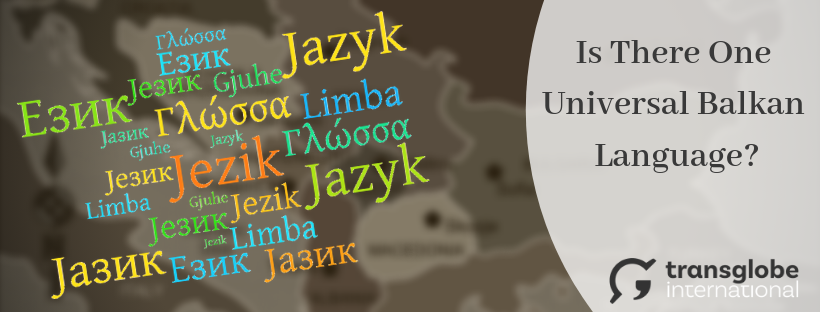Is There One Universal Balkan Language?
If you’re thinking about investing in the Balkans or reaching the local markets, you might notice the many common features of most languages in the region. And you could naturally wonder – might there be a single language which is universally understood throughout the Balkan Peninsula? Is there one language to rule them all?
Balkan Languages: Origins
Contrary to what many believe, the Balkan languages are not a single language family. They descend from the wider ancient Indo-European language family and are defined as a language group or league, also called Balkansprachbund. This is because all mutual similarities are not due to a common ancestor language but rather as a result of language contact. These are the five branches of the Indo-European languages that gave rise to the Balkan languages:
- Albanian
- Hellenic (Greek)
- Romance (Romanian, Aromanian, Megleno-Romance and Istro-Romanian)
- Slavic (Bulgarian, Macedonian, Serbo-Croatian, Slovenian and Slovak)
- Indo-Aryan (Romani)
It’s easy to expect that there would be similarities within each branch. However there are several more fundamental common traits among all branches. There also are some important differences, which we will explore below.
Similarities
One thing that may seem quite striking to non-Balkan people is how similar our languages sound and look, and how well we can more or less understand each other. Of course, this is not entirely true for all Balkan languages. It does indicate though one important similarity – they are all comparatively young. Unlike the Germanic languages, which started evolving around 200CE, the Proto-Slavic language didn’t emerge until about 500-1000CE. This means the Balkansprachbund had less time to develop and grow apart, e.g. like English and German.
Generally looking, while some of the languages may share little vocabulary, their grammars are quite similar – like their case systems. The alphabets all use the same set of 30 phonemes which are shared between the two scripts used in the region. This means it’s easy to map Latin and Cyrillic alphabets to one another, and you can even use both interchangeably in some countries (Bosnia and Herzegovina, Montenegro, Serbia).
Differences
Historically, the Balkans have been a very hot and eventful place for hundreds of years. This has led to many political and cultural differences among the peoples here. One can have quite a hard time finding any obvious common features, e.g. between Greek and Romanian, or between Albanian and Bulgarian. This is of course due to them belonging to separate branches of the same family. However, the most noticeable differences are not the most important ones. All Balkan people are proud of their rich history and culture, and this is the main thing to consider when communicating with them.
So, to answer the big question – no, there is no one common Balkan language. While we may more or less understand each other, for us it’s crucial to see that our national identities and traditions are respected. Using the correct language is important, but not more than being culturally sensitive to the different nations. Even with really similar languages it’s all about understanding how significant the tiny differences are and taking them into account when talking to people.
If you are planning to expand your business into the Balkans, it’s best to work with regional experts. We at TransGlobe can help you successfully reach all Balkan markets! Get in touch with us or use the button below to request a free quote!

